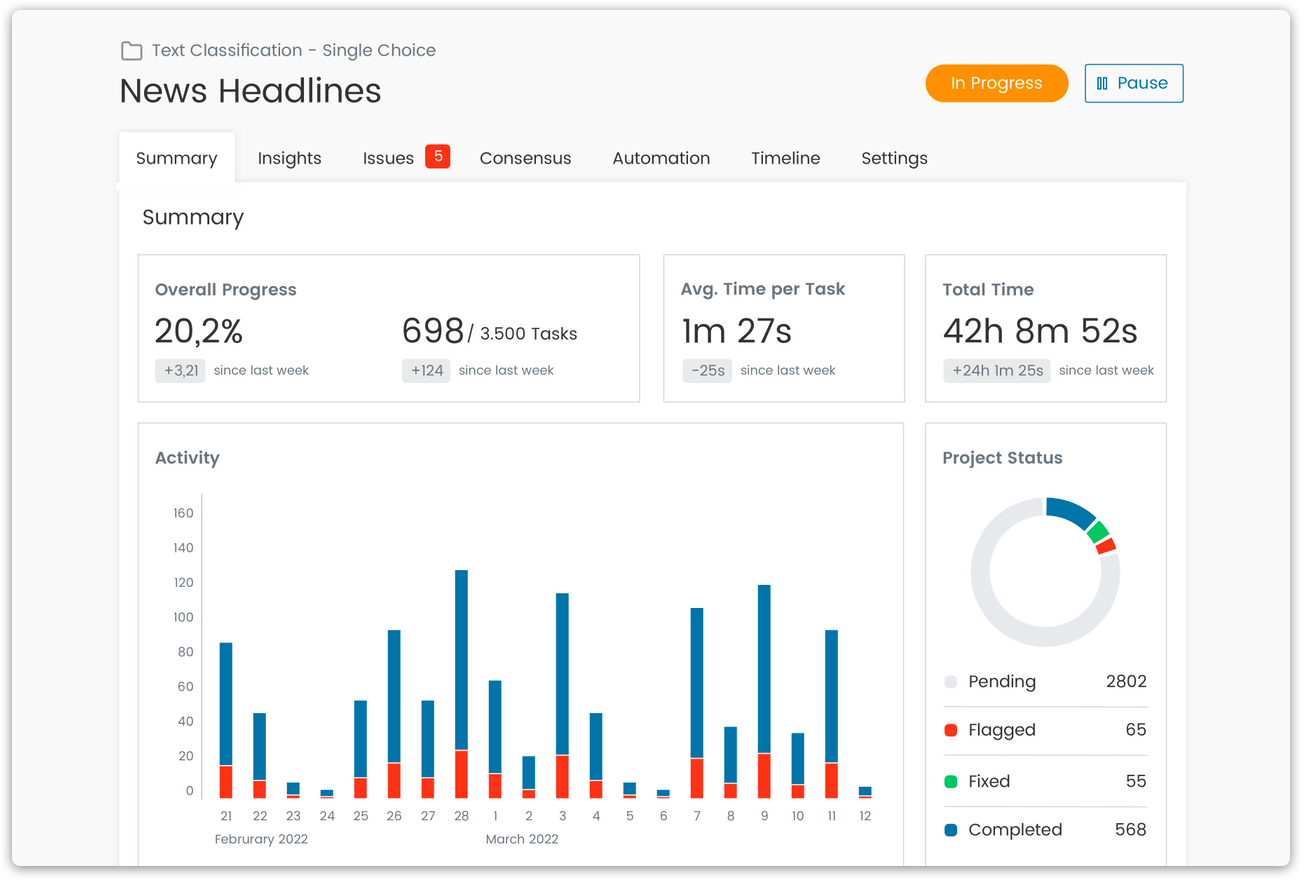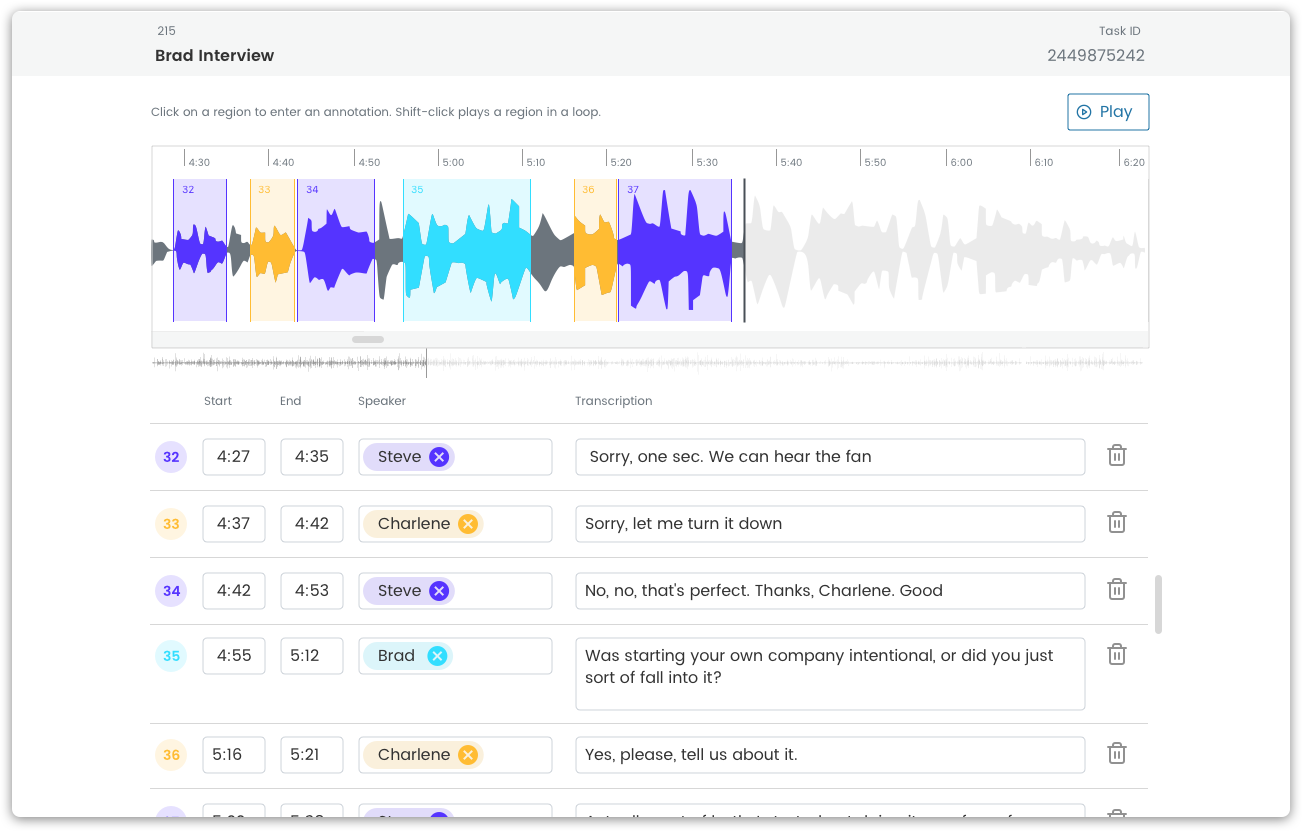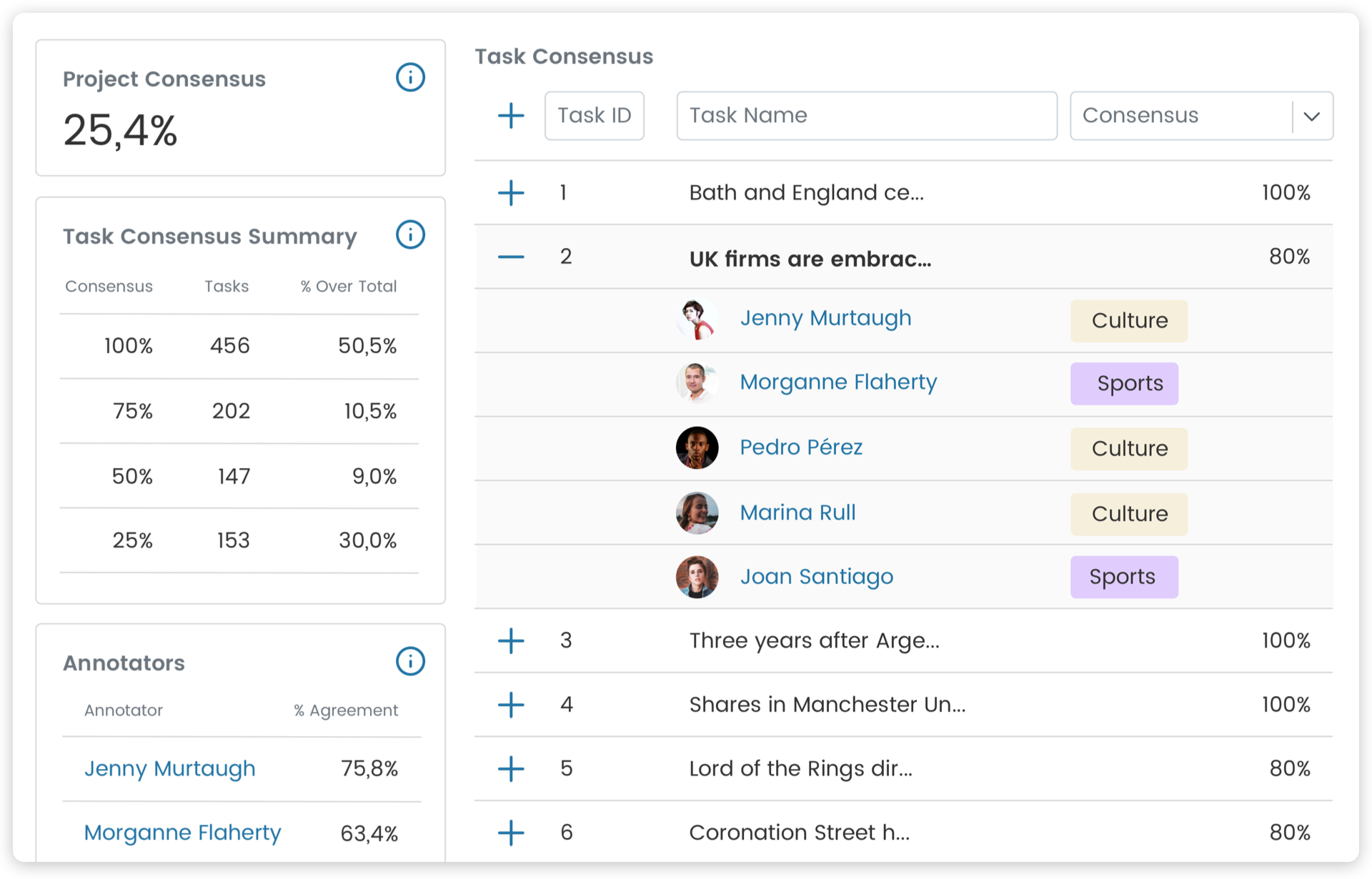Guindo Design
Strategic Digital Product Design
M47.AI
Intelligent data labelling platform for training machine learning algorithms
M47.AI is the first platform in Spain focused on training machine learning algorithms for companies. The tool is part of M47 Labs, a consulting and engineering company focused on developing artificial intelligence technology solutions.
The M47 Labs team contacted us to carry out the interaction design of the tool, to improve the usability of the beta version, as well as to rethink the process flow of the main tasks.

The objective of this project is assists the companies that develop Artificial Intelligence technology, by training and improve their algorithms autonomously, aiming to break down two of the main problems that companies that want to work with AI encounter: The lack of data quality training programs correctly annotated, and the lack of data in languages other than English, which forces companies without resources to develop their algorithms for English-speaking markets.

From a technological point of view, the system works with different resources for algorithm training:
- Quick annotation of data in any language.
- Team management, which allows selecting who will train the algorithms in each project, definition of roles (annotators or reviewers), task control, KPIs, schedules, etc.
- Annotation automation using machine learning techniques.
- Creation, administration and import of own data sets and labels, or through the platform's public library.
One of the most important parts of training machine learning algorithms is logging real data from companies' use cases (reviews of their products, internal documents, or call logs at customer service centres). The task of human annotation is expensive but essential. Therefore, one of the main pillars of the tool is usability, the experience of using the annotators is a priority. All processes, tasks and workflows have been specifically designed to facilitate users' tasks and improve their productivity.

For this, specific utilities and tools were defined for the type of annotation task (entity recognition, text intention recognition, document classification, sentiment ...), combining them with assistants for automation using Natural Language Processing libraries.